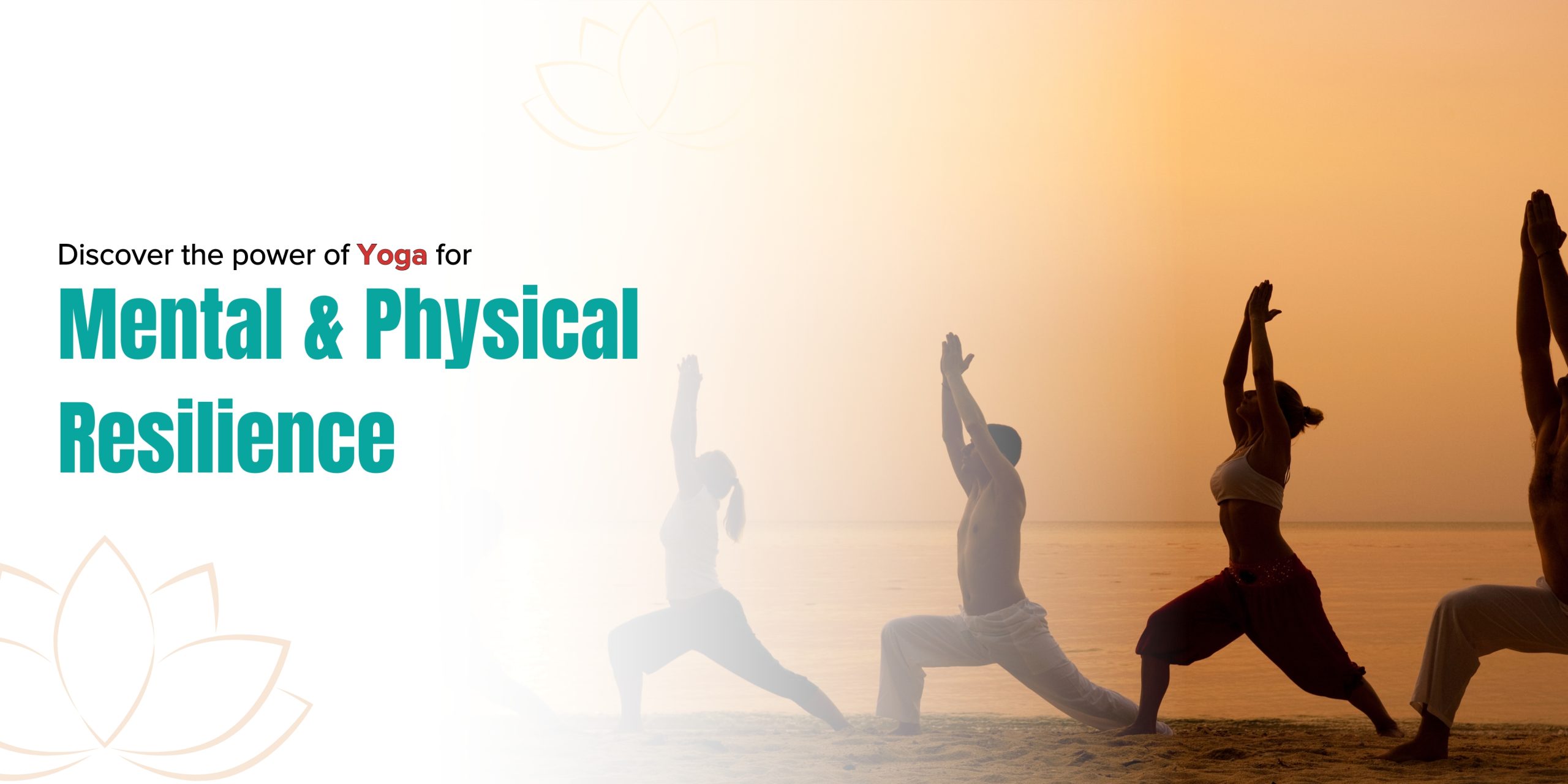
Discover the Power of Yoga for Mental and Physical Resilience
Developing both mental and physical resilience is essential in the fast-paced, uncertain, and stressful world of today. Yoga, an age-old discipline that balances the body, mind, and soul, is a potent remedy. Yoga is more than simply physical activity; it's a holistic approach to well-being that includes awareness, breath control, and meditation.
You can gain a balanced, meaningful life, strengthen your capacity to manage stress and improve your physical health by including yoga in your daily practice. Let's explore how yoga can transform your mental and physical resilience and enrich your overall wellness.
Understanding Yoga (more than just poses)
Yoga is basically a spiritual practice that aims to achieve harmony between the mind and body through a very subtle science. It is the science and art of leading a healthy life.
- Yoga comes from the Sanskrit root 'Yuj,' which means 'to join, to yoke, or to unify.'
- Yoga is a low-impact workout that has been demonstrated to increase endorphins and other feel-good brain chemicals while lowering stress hormones in the body.
- These feel-good hormones contribute to elevated happiness and reduced anxiety.
Mental Resilience through Yoga
Yoga is an excellent way to develop resilience to stress. Yoga is a life metaphor that teaches you a lot about the functioning of the mind. For instance, when your practice is fluid, effortless, and graceful, it's simple to be at ease and joyful.
❖ Stress Reduction
- Since yoga encourages relaxation, which is stress's natural opposite, it can help lower stress.
- Our body, mind, and breathing are the three areas of ourselves that are frequently impacted by stress and can all benefit from yoga.
- You shouldn't, and you don't have to, wait to practice yoga until you're feeling anxious!
- By promoting relaxation, calm breathing, and present-moment awareness, yoga helps people balance their sympathetic nervous system and relaxation response rather than their sympathetic nervous system and fight-or-flight reaction.
❖ Emotional Balance
- Practising yoga for even ten minutes a day will help you overcome emotional reactivity, lower your anxiety, and elevate your mood.
- One of the most common reasons people seek treatment with complementary treatments like yoga is for mental health issues like depression, anxiety, stress, and sleeplessness.
- By promoting relaxation, calm breathing, and present-moment awareness, yoga helps people balance their sympathetic nervous system and relaxation response rather than their sympathetic nervous system and fight-or-flight reaction.
❖ Mental Clarity
- Your brain's structure and function change as a result of yoga practice, and your brain cells form new connections that enhance cognitive abilities like memory and learning.
- Yoga releases endorphins, serotonin, oxytocin, and dopamine, which are feel-good hormones that contribute to a calm and relaxed state of mind. Focus and concentration are also enhanced by yoga. Concentration is frequently impeded by stress and anxiety.
- Since yoga encourages relaxation, which is stress's natural opposite, it can help lower stress. Our body, mind, and breathing are the three areas of ourselves that are frequently impacted by stress and can all benefit from yoga. You shouldn't, and you don't have to, wait to practice yoga until you're feeling anxious!
Yoga for Cultivating Resilience
Resilience can be developed via the physical postures, breath control, and focus of yoga. The physical postures, which include forward, backward, and lateral bends, stretch our muscles and stimulate our endocrine glands and internal organs. This, in turn, reduces the activity of the sympathetic nervous system.
❖ Mindfulness
- Through improving self-awareness, lowering stress, and encouraging emotional regulation, mindfulness fosters resilience.
- It helps people control their negative thoughts, stay in the moment, and handle difficulties coolly.
- It encourages a resilient and well-rounded way of thinking about life's challenges.
❖ Self-Compassion
- Yoga is a great way to cultivate compassion for both yourself and other people.
- The peaceful, centered state that arises from practicing yoga and making the time and space to be present with oneself helps build compassion.
- You can start incorporating more self-care and kindness into your everyday routine.
❖ Connection
- Through attentive practices, yoga promotes a deeper connection with oneself, enhancing emotional awareness and self-awareness.
- Taking group yoga classes helps people connect with like-minded people by building a sense of support and belonging.
- Yoga strengthens empathy and compassion, which strengthens social ties and interpersonal interactions.